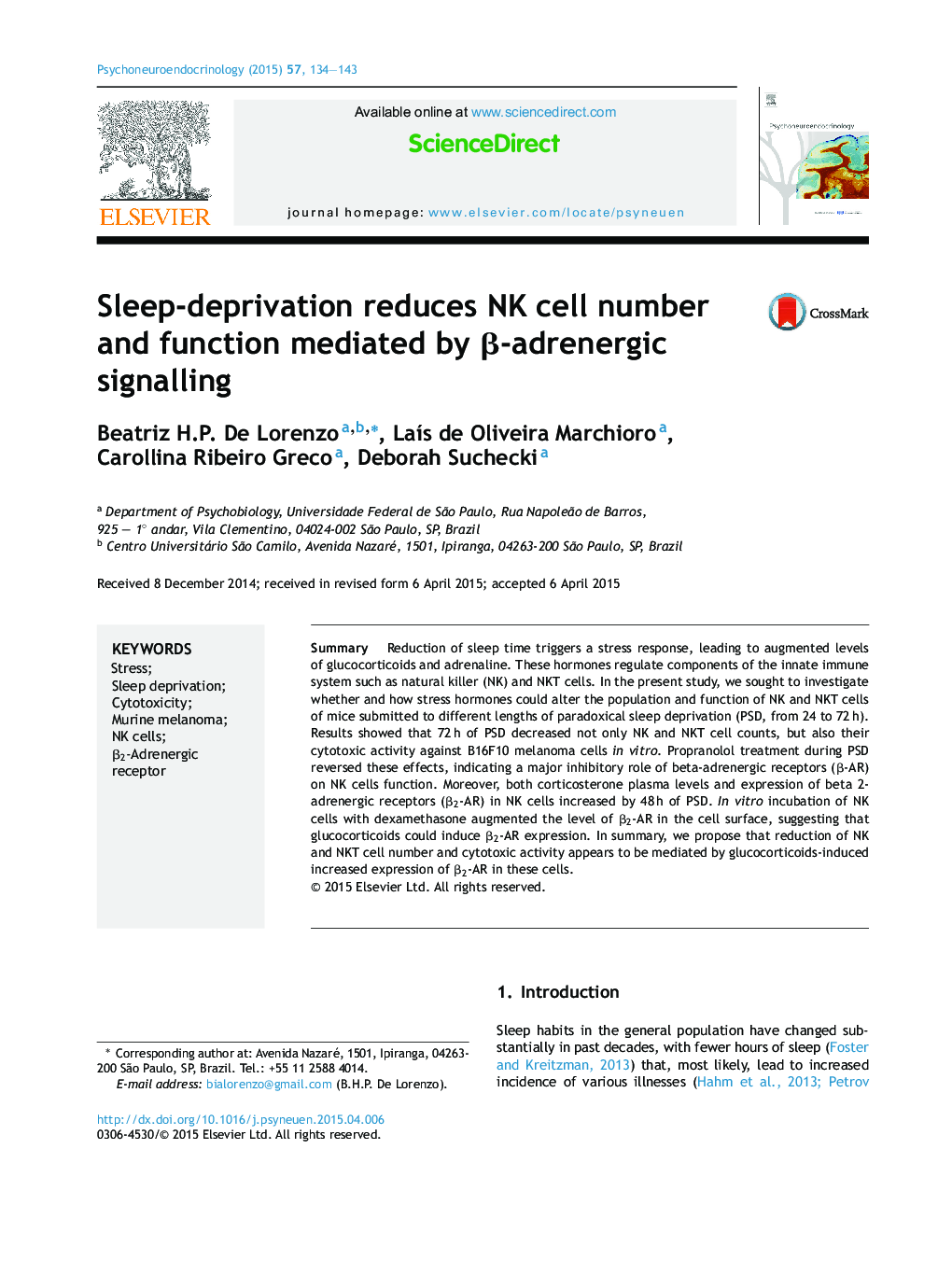| Article ID | Journal | Published Year | Pages | File Type |
|---|---|---|---|---|
| 335657 | Psychoneuroendocrinology | 2015 | 10 Pages |
•We examine the effect of sleep deprivation in NK cell number and activity.•Sleep deprivation reduces the cytotoxic abilities against tumour cells in vitro.•β2-AR signalling induces the redistribution of NK cells.•The mechanism relies on overstimulation of NK cells by catecholamines.•Propranolol reverses the reduction in the number and activity of NK cells.
SummaryReduction of sleep time triggers a stress response, leading to augmented levels of glucocorticoids and adrenaline. These hormones regulate components of the innate immune system such as natural killer (NK) and NKT cells. In the present study, we sought to investigate whether and how stress hormones could alter the population and function of NK and NKT cells of mice submitted to different lengths of paradoxical sleep deprivation (PSD, from 24 to 72 h). Results showed that 72 h of PSD decreased not only NK and NKT cell counts, but also their cytotoxic activity against B16F10 melanoma cells in vitro. Propranolol treatment during PSD reversed these effects, indicating a major inhibitory role of beta-adrenergic receptors (β-AR) on NK cells function. Moreover, both corticosterone plasma levels and expression of beta 2-adrenergic receptors (β2-AR) in NK cells increased by 48 h of PSD. In vitro incubation of NK cells with dexamethasone augmented the level of β2-AR in the cell surface, suggesting that glucocorticoids could induce β2-AR expression. In summary, we propose that reduction of NK and NKT cell number and cytotoxic activity appears to be mediated by glucocorticoids-induced increased expression of β2-AR in these cells.
